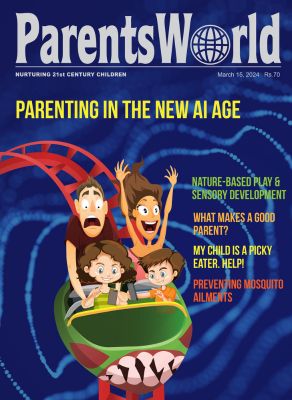Adolescents with behavioural and substance abuse problems are five times more likely to die prematurely than their peers, says a study published in the London-based journal Addiction (August). The study conducted by the University of Colorado, Boulder (USA) found that ‘conduct disorder,’ a mental health illness that involves aggressive anti-social behaviour, such as property destruction, lying and thievery in teenagers, is as much of a predictor of early death as substance abuse.
The researchers analysed death rates among 1,463 adolescents who had been arrested or referred to counselling for substance use problems or ‘conduct disorder’. They also followed a control group of 904 adolescents of similar age and demographic background. The researchers found that while both conduct disorder and substance use severity were associated with increased mortality risk, conduct disorder was a more powerful independent risk factor.
“This research makes it clear that youth identified with conduct problems are at extreme risk of premature mortality, beyond that which can be explained by substance use problems, and in critical need of greater resources and help,” says lead author Richard Border, a graduate student with the university’s Institute for Behavioral Genetics.
Toxic substances found in crayons & markers
The United States Public Interest Research Group (PIRG), a consumer rights group, has found that a number of school supplies tested contained toxic substances including asbestos in crayons and benzene in a dry-erase marker. The findings were detailed in a report published by the group, which conducted an independent laboratory test of 27 school stationery products including crayons, markers, binders, water bottles, lunchboxes, notebooks, rulers and glue.
Of the crayons tested, a Playskool crayon tested positive for tremolite, a form of asbestos. Benzene — a carcinogen that’s known to cause leukemia and potentially other types of cancers — was found in a pack of six magnetic markers produced in a brand owned by Mattel. The group also found phthalates, a plastic that is being investigated for suspected links to asthma and birth defects, in three-ring binders. “It’s insane for us to find asbestos in kids’ products, whether it’s legal or not, and parents shouldn’t have to worry about this in 2018,” says Dev Gowda, author of the report.
Early onset of diabetes in girls linked with lower life expectancy
Girl children who develop Type-1 diabetes before the age of 10 die an average 18 years earlier than those who don’t have this disease, says a study published in Lancet (August). The study conducted by researchers at the University of Gothenburg, Sweden, also found that male children in the corresponding situation lose almost 14 years of life. The lives of patients diagnosed at age 26-30 years are shortened by an average of ten years.
“The study suggests that we must make an even greater effort to aggressively treat patients diagnosed at an early age to reduce the risk of complications and premature death,” says researcher and co-author Araz Rawshani at the university’s Sahlgrenska Academy.
The team monitored 27,195 individuals with Type-1 diabetes for ten years. The group was compared with 135,178 controls from the general population without diabetes. While researchers already knew that Type-1 diabetes is associated with lower life expectancy, until now it was unclear whether and how much gender and age at the onset of illness affect both life expectancy and the risk of cardiovascular disease.
Self-regulation helps toddlers maintain healthy weight
Toddlers who learn self-regulation skills early are better able to maintain a healthy body weight, says a study published in the UK-based International Journal of Obesity (August). The study conducted by Penn State University, USA found that toddlers who had poor self-regulation skills — capability to control their behaviour and emotions — had lower body mass indexes in adulthood, especially if their mothers engaged with them during playtime and helped them clean up.
“If parents help their kids learn to self-regulate, the latter can use those skills in many other situations, including eating. Good self-regulation will help a child restrain herself from throwing a tantrum, and is likely to prevent her from over-eating. Building these skills is a process that doesn’t develop on its own. It requires parents to step in,” says Cynthia Stifter, lead researcher and professor of human development and psychology at Penn State University.


























